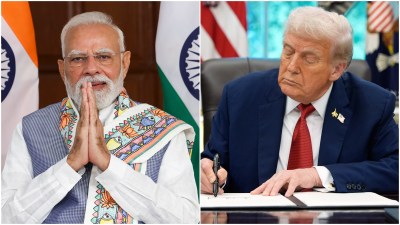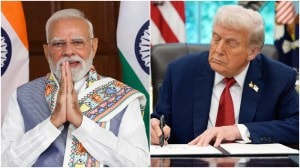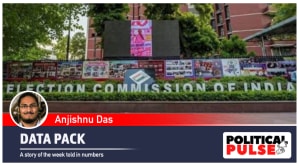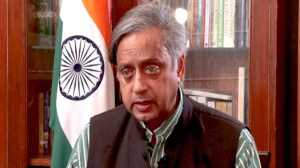Shy firm squirms in glare of publicity
For a company which considers any news as bad news, the headline making resignation of its managing director must have stopped some hearts. ...

For a company which considers any news as bad news, the headline making resignation of its managing director must have stopped some hearts. The controversial and messy resignation of its MD indicates that the company is in far more trouble than is evident.
Ardeshir Daraius, its MD, resigned or was forced to resign, on charges of insider trading and window-dressing of accounts. While Nestle denies that the reasons are these, reports suggest that Daraius was asked to go because of his questionable actions. These reports are strengthened by the fact that a team of consulting firm KPMG’s experts was asked to go into the functioning of Nestle India by the parent firm Nestle SA of Switzerland.Irreconcilable differences between the man and the corporation have been offered as the official reasons for the resignation. Compounding the problem embarrassment for Nestle has been a show-cause notice from the Bombay Stock Exchange which wanted to know why the company did not inform about the board meeting to discuss theresignation.
BSE feels that the sudden resignation could have given opportunity for some people who knew the development to indulge in insider trading. It has rejected the initial reply of Nestle and sought further clarification on the delay in informing BSE.
Nestle India has seen dramatic growth in the last five years under the leadership of Daraius who has been MD since 1993. From Rs 566 crore in 1993, to Rs 710 crore in 1994, its turnover rose to Rs 1214 crore in 1996. For the year ended December 1997, Nestle had a profit Rs 1434 crore, double that of 1994. Its target now is to cross Rs 3000 crore turnover by 2000 to become the second largest company in the processed food segment after Hindustan Lever.
Flop issues
LAST year was one of the worst for the primary markets. The money raised from new issues was just a quarter of that in last year. The primary capital market mobilisation (public issues of capital by companies) fell in 1997-98 to touch Rs 2,885 crore compared to Rs 11,648 crore lastyear.
The year saw only 62 public issues compared to 753 in the previous year, which amounts to a decline of 92 per cent. The share of the manufacturing sector in the total mobilisation in 1997-98 fell to just 12 per cent as against 32 per cent in 1996-97 and 83 per cent in 1994-95, according to data released by Prime Database.
As a result most of the issues were raised by financial institutions (FIs) and private and public sector banks with the sector mopping up Rs 2,492 crore during the year out of the total Rs 2,885 crore. The share of FIs and banks in the total mobilisation have increased from a four per cent in 1994-95 to 86 per cent in 1997-98.
Of the total mobilisation during the year, public issues of debt accounted for 61 per cent, amounting to about Rs 1,760 crore, from four issues. All the four debt issues were from public sector companies two from ICICI and one each from IDBI and Ahmedabad Municipal Corporation. Prime said the aggregate cost of projects financed through pubic issues alsodeclined dramatically during the year to Rs 1,973 crore from Rs 38,182 crore in 1994-95 and Rs 6,925 crore in 1996-97.
Counter attack
After all other attempts to thwart the takeover bid failed, Raasi Cement has decided to make a counter-offer to the public offer by India Cement Ltd (ICL) to acquire 20 per cent stake in Raasi. The Andhra Pradesh High Court’s division bench in its judgement rejected the plea of Raasi that the takeover would hurt the interest of the company.
The high court ruled that the Securities and Exchange Board of India (SEBI) being a statutory body would take all the precautionary measures to protect the interests of all shareholders. The bench also said that the takeover of the shares by ICL need not be with the prior approval of SEBI and Government of India.
Raasi chairman B V Raju in a brief statement, said: "We are making all arrangements to execute the counter-offer. We will fight to retain control of the company we have built over the last 20 years."




- 01
- 02
- 03
- 04
- 05

























